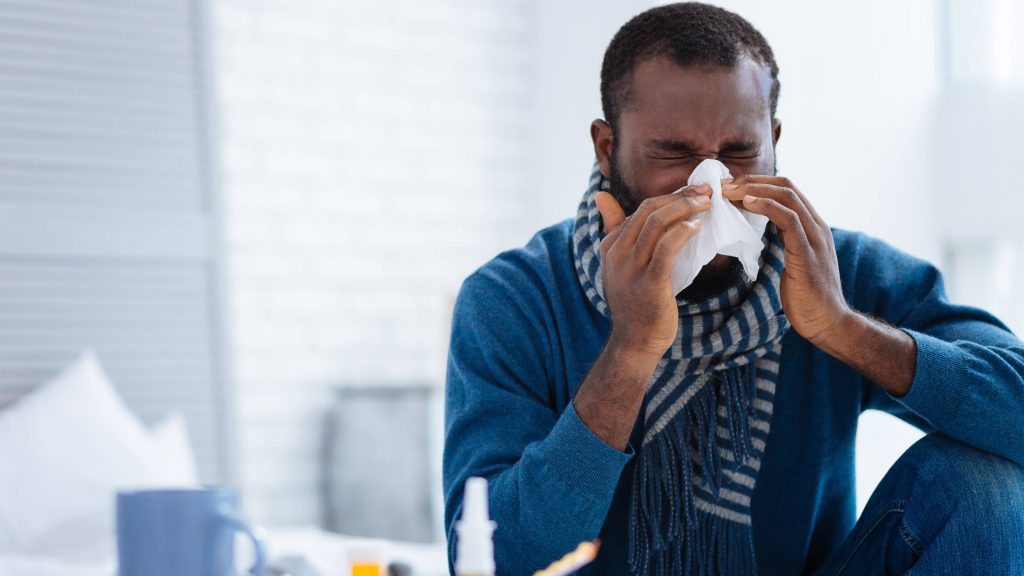
With winter fast approaching, many are wondering how COVID-19 will affect the 2020–2021 influenza season. Dr. Gregory Poland, an infectious diseases expert and director of the Mayo Clinic Vaccine Research Group, says while it's difficult to predict exactly what will happen, the Southern Hemisphere, where the flu season is coming to an end, offers some clues.
Watch: Dr. Poland discuss COVID-19 and the upcoming influenza season.
Journalists: Sound bites with Dr. Gregory Poland are in the downloads at the end of the post. Please courtesy "Gregory Poland, M.D. / Vaccine Research Group / Mayo Clinic."
"Interestingly enough, if we wear masks and keep our distance, what we're seeing in the Southern Hemisphere is that the influenza burden went way down. So masks work and they actually are important in decreasing the transmission of respiratory diseases," says Dr. Poland.
Strategies to slow the spread of COVID-19, such as wearing a mask, physical distancing and excellent hand-washing, are also going to be important to lessen flu outbreaks.
"We're also suggesting that people may want to get their flu vaccine a little earlier than what they might be used to ― perhaps in the early September time frame. Don't wait until November or December," says Dr. Poland.
The reason, he explains, is because influenza can cause a lot of medical problems and by itself can cause a surge demand on the medical system.
"What's very likely to happen this year is we're going to have seasonal coronaviruses causing illness, pandemic coronavirus causing illness, influenza causing illness. And then we always have pertussis, and for those who haven't gotten their measles vaccine, measles and other diseases. Here's the problem: The symptoms all look like COVID-19. That is a demand on the medical system that we can't meet nationally," says Dr. Poland.
"So for your health, the health of your family, your community, please get a flu vaccine this year, wear a mask, practice physical distancing and wash your hands," says Dr. Poland.
Information in this post was accurate at the time of its posting. Due to the fluid nature of the COVID-19 pandemic, scientific understanding, along with guidelines and recommendations, may have changed since the original publication date.
Check the Centers for Disease Control and Prevention website for additional updates on COVID-19. For more information and all your COVID-19 coverage, go to the Mayo Clinic News Network and mayoclinic.org.







